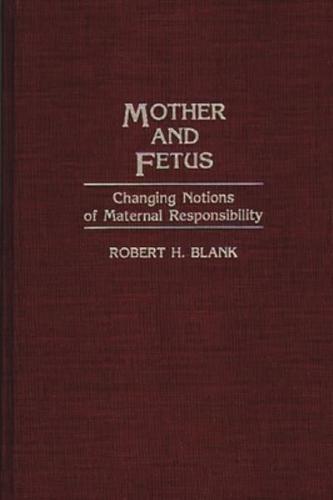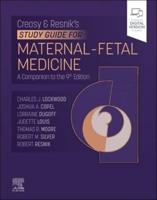Publisher's Synopsis
No single area of medicine promises more acrimonious and intense debate in the coming decades than the implications of new medical technologies on the maternal-fetal relationships. This is the only book to combine comprehensive coverage of the legal and social issues raised as a result of both emerging technologies for fetal intervention and increasing knowledge of fetal development. It examines such issues as the effects of maternal behavior on the fetus's health, hazards in the workplace, teenage pregnancy, and the use of therapeutic and diagnostic techniques. The volume also summarizes the legal/political context of policies regarding the mother's responsibility for the welfare of the fetus and describes the current status of these issues in public law.
The work opens with a framework for examining rights and, in chapter 2, gives an in-depth description of knowledge about the impact of maternal actions on fetal development. Attention then turns to current trends in case law, as Chapter 3 traces the growing acceptance of causes of legal action for prenatal injury or death of the fetus. Chapter 4 extends this analysis to look at the changing legal context for defining standards of care for pregnant women. Chapter 5 examines three disparate but critical topics illustrating the pressures women face in the 1990s: workplace hazards, teenage pregnancy, and surrogate motherhood. The final chapter integrates the technological, legal, social, and political dimensions surrounding the maternal-fetal relationship into a context for creating an effective public policy.










